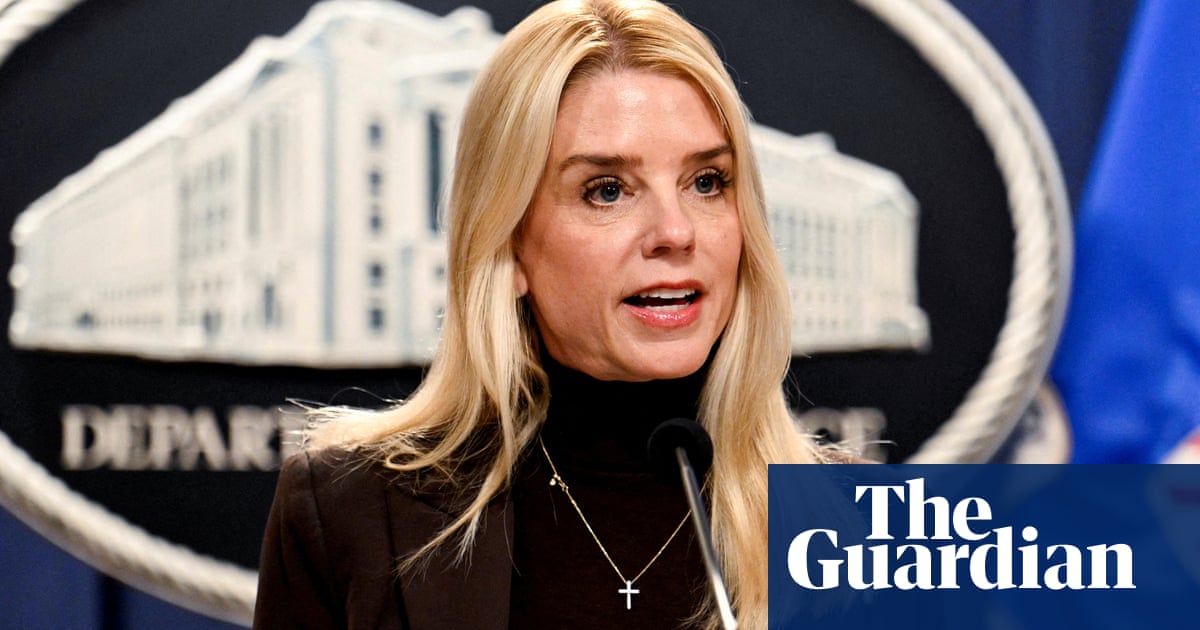Pam Bondi, the US attorney general, has revoked a Biden administration-era policy that restricted subpoenas of reporters’ phone records in criminal investigations.
An internal memo, firstreportedby ABC News, shows Bondi rescinding protections issued by her predecessor, Merrick Garland, for members of the media from having their records seized or being forced to testify in the course of leak investigations.
The memo says federal employees who leak sensitive information to the media “for the purposes of personal enrichment and undermining our foreign policy, national security, and government effectiveness” are engaging in conduct that could be characterized as “treasonous”.
“This conduct is illegal and wrong, and it must stop,” the memo states. The justice department “will not tolerate disclosures that undermine President Trump’s policies, victimize government agencies, and cause harm to the American people”.
Bondi’s memo states that she has concluded that “it is necessary to rescind Merrick Garland’s policies precluding the Department of Justice from seeking records and compelling testimony from members of the news media in order to identify and punish the source of improper leaks”.
But, she said, the department would continue to employ procedural protections to “limit the use of compulsory legal process” to obtain journalists’ records, acknowledging that a “free and independent press is vital to the functioning of our democracy”.
Under the new policy, Bondi wrote, the attorney general “must also approve efforts to question or arrest members of the news media”.
The move comes after Tulsi Gabbard, the director of national intelligence, said she had made multiple criminal referrals to the justice department related to alleged leaks in the intelligence community.
One of the leaks included information leaked to the Washington Post, GabbardtoldFox News on Wednesday. She went on to describe the leakers as “deep-state criminals” with “partisan political purposes to undermine President Trump’s agenda”.
In 2022, Garland issued regulations to restrict how federal prosecutors could pursue leak investigations,following revelationsthat justice department officials under the previous Trump administration had secretly obtained the phone records of reporters at the Washington Post, CNN and the New York Times.
Bondi’s memo comes as Donald Trump, who has frequently branded journalists “the enemy of the people”, has escalated his attacks on the US media landscape since returning to the White House in January.
The new Trump administration’s war on the press has includedseizing control of the White House press pool from news organisations, engaging in ahighly publicized dispute with the Associated Pressover the wire agency’s decision not to adopt the name Gulf of America instead of Gulf of Mexico into its stylebook, andmoving to dismantle Voice of America (VoA).
The justice department did not immediately respond to a request for comment.
